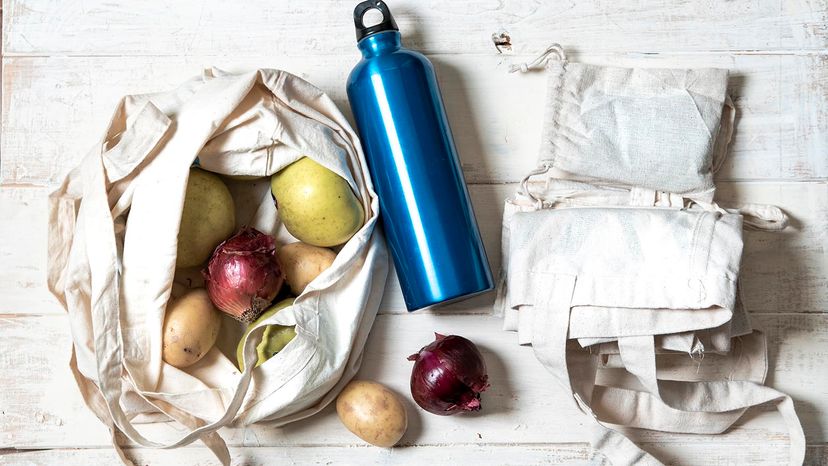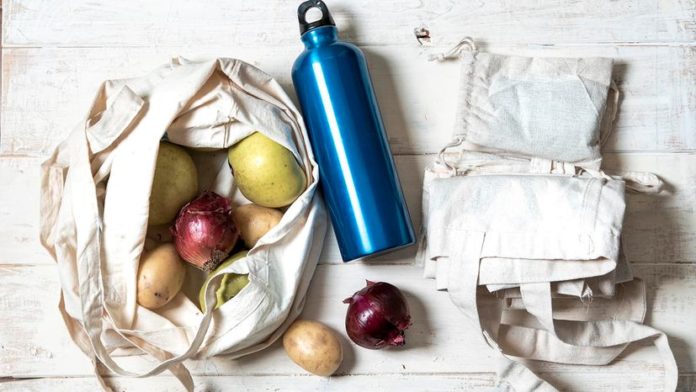\”
 \”Reusable shopping bags are great for the environment. But you need to be sure to wash them! ©eleonora galli/Getty Images
\”Reusable shopping bags are great for the environment. But you need to be sure to wash them! ©eleonora galli/Getty Images
With all the talk about how to safely grocery shop, sanitize your groceries when you get them home, and of course wash your hands, you may have overlooked the importance of keeping your reusable totes and grocery bags clean. Using these bags is an excellent way toward being eco-friendlier because they allow you to skip single use paper and plastic; but it\’s also their very reusability that makes them ripe for all kinds of germs, bacteria and cross-contamination.
So if you haven\’t tossed your reusable bags in the wash in a while (or ever), now\’s a good time to start practicing good habits that can keep you and your food safe. Think of it this way: Washing and storing your bags safely can help prevent bacteria, yeasts and molds from growing in and on them, according to the American Cleaning Institute. Gross!
Washing Reusable Grocery Bags
If you are like many people, you probably more reusable bags than you know what to do with. No matter how many you have, the American Cleaning Institute still recommends washing them after each use. If any of your bags have plastic inserts in the bottom, first remove those. You can wipe them down with disinfectant while the bags are in the machine. Next, wash your bags according to their material and washing instructions.
Some bags, like those made of cotton, bamboo and hemp, can be tossed in a washing machine and machine- or line-dried. (If you are worried about shrinkage, just bypass the dryer.) Woven and nonwoven polypropylene bags — the types of bags made from recycled plastic — can also be machine washed on a gentle cycle or washed by hand in soap and warm water. These bags should be line dried only. Nylon and polyester bags get a similar treatment. Hand wash them in warm water, then hang them inside out to dry. Finally, insulated bags need to be handwashed or cleaned with disinfecting wipes. Take special care to clean along the seams.
Separate and Store Reusable Bags
You probably don\’t place raw meat next to fresh veggies in your fridge, so don\’t do the same in your bags, because that meat can still leak onto the bag\’s surface. And if you don\’t get a chance to wash your bags between every use, that juice that leaked on your bag could lead to cross-contamination. With this in mind, The Spruce recommends designating certain bags for specific uses. For example, use the same bag each time for raw meats only. Same goes for cleaning supplies. Definitely don\’t use the same tote you use to bring home raw chicken to later carry items like diapers or your sweaty gym clothes.
When it\’s time to store your reusable bags, keep in mind that while it may be convenient to have them in your car, leaving unwashed bags in a hot environment like that creates a breeding ground for bacteria. Instead, keep them in a cool, dry place, preferably in your home.
Unfortunately, even reusable bags won\’t last forever. If a bag is stained, worn-out or just won\’t come clean, it\’s time to toss it — or better yet, recycle it.
Now That\’s Interesting
Reusable bags are only better for the environment if you use them — a lot. A 2014 Clemson University study found that it takes 21.5 times uses for a bag made from recycled polypropylene plastic to match the carbon footprint of the typical plastic grocery store bag.










